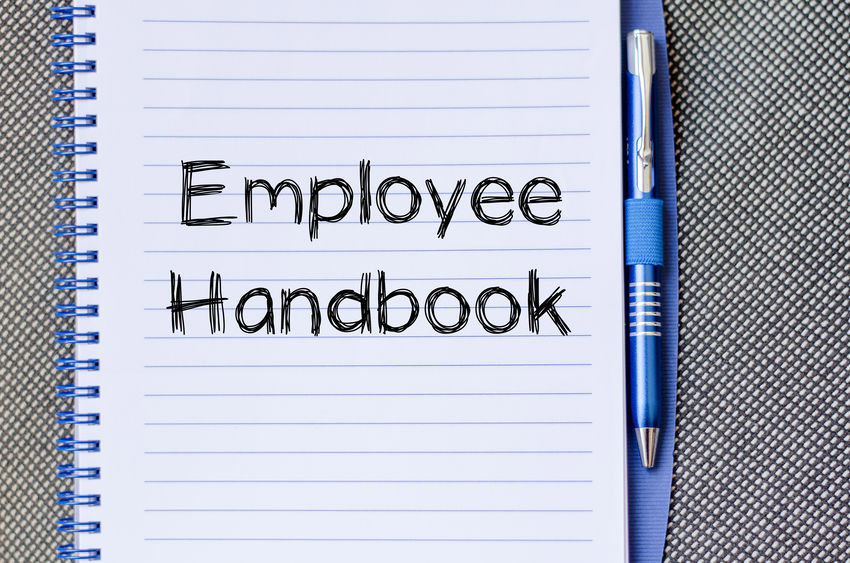Is Your Business Required to Have an Employee Handbook?
The short answer is no. There are no federal or state laws specifically requiring an employer to have an employee handbook; in fact, some employers choose not to have one. However, not having one is extremely hazardous for your business. The truth is that a legally compliant and up-to-date employee handbook will answer many of the basic questions that would otherwise burden your Human Resources supervisor; and can provide a great deal of legal protection in the event that your business’ policies or practices are ever challenged in court by an employee or regulator. Let’s face it, sooner or later you will eventually be faced a lawsuit or complaint from a current or former employee for issues such as wrongful termination, harassment and/or discrimination.
When this happens, one of the most useful tools you can have is a copy of your employee handbook. If you don’t have your policies and procedures in writing, an employee can charge that he or she did not know about a particular guideline; and this will surely result in legal action. Therefore, by all accounts, creating and maintaining an employee handbook is a best practice for any business; and you should definitely implement, and continuously revise your company’s employee handbook.
What is an employee handbook?
An employee handbook is just that, a resource (usually a published or digital booklet) used to provide employees with information that, by law, must be delivered to them in writing, and other useful information. This includes topics like equal employment opportunity statements, office hours, overtime and others. The handbook provides your staff with a detailed overview of the policies that are key to your organization, along with other procedures and guidelines. The goal of any employee handbook is to set clear expectations for your employees, while also presenting your legal obligations, as well the employees’ rights and responsibilities. Your handbook not only communicates these entitlements and obligations to employees, it also shows that your enterprise is active in being compliant with government regulations. Because no matter where you do business, or how many employees you have, you will always be subject to state and federal laws that govern the employment relationship.
How to write an employee handbook?
A thorough and compliant handbook will help to show your business is committed to exercising reasonable care towards your employees; and that you want your business to be fair, by having the same set of rules for all employees and staff. As a matter of best practice, each new employee should receive a copy of the handbook and be required to read and acknowledge the document prior to their start date. Once the acknowledgement has been signed, it should be stored in your systems within each employee record. An employee’s signed acknowledgement will establish that they had an opportunity to familiarize themselves with your company policies, were given an opportunity to inquire about any issues, and agreed to follow the terms and conditions of their employment.
Although there is no one-size-fits-all solution, seeing as all businesses are unique and distinct, here’s a basic breakdown of what an employee handbook typically includes: Description of the Company, Mission Statement, Equal Employment Opportunity Statement, Office Hours, Timekeeping, Overtime, Attendance and Tardiness, Payroll Information, Sexual Harassment, Americans with Disabilities Act, Performance Reviews, Telephone/Email/Social Media Use, Discipline Procedures, Termination, Employee Benefits, Holidays and Vacations, Sick Leave, Personal and Paid Time Off, Family Medical Leave, Retirement Plans, Pension Plans, Workplace Training, Workers’ Compensation, Workplace Safety, OSHA Requirements, Employee Acknowledgement, and others.
Once you have drafted your employee handbook, here are some more additional items you should look into executing: have an attorney review the handbook, give each employee a copy, make sure each employee signs as having received, reviewed and accepted the handbook, place a copy up on the company’s internal website, re-visit the handbook periodically, ask your employees for feedback on improving the handbook, and update any policies that have changed.








